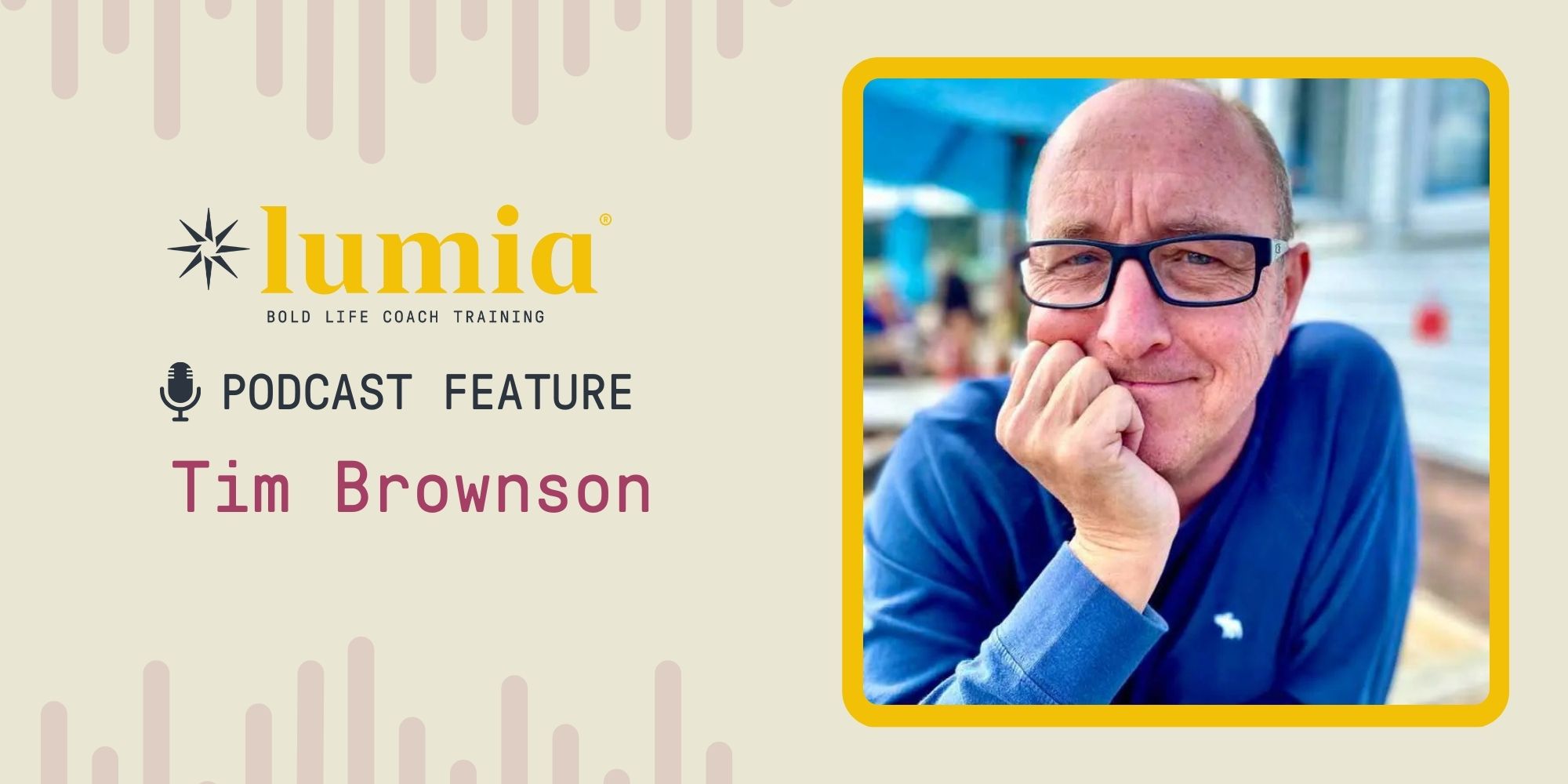How Coaching Skills Can Help You Level Up In A Changing World
In this episode of The Everything Life Coaching podcast, John and Noelle demonstrate two coaching interventions that are rooted in positive psychology.
The Everything Life Coaching Podcast, featuring Lumia Coaching founders John Kim and Noelle Cordeaux, is a deep dive into the experience and business of being a life coach. Subscribe to get new episodes weekly!
Learn Two Positive Psychology Coaching Interventions
Coaching also involves setting goals, addressing challenges, and implementing tools that can help our clients. In this episode, John and Noelle discuss two theories we can apply in our work as life coaches.
Setbacks Theory
Derived from the work of American psychologist Martin Seligman, Setbacks Theory (or Learned Optimism) tells us that when we are able to step back and look at our lives honestly - especially the hard parts - that can lead to greater resilience. By asking ourselves three questions, we're able to square with reality in an action-based way.
So, what are Seligman's three questions?
1. Is this setback temporary or will it plague you forever?
When something goes wrong, it can often feel like the situation will never turn around. This question helps us to remember that feelings aren't facts. Whatever problem we're facing, it's almost always temporary. Remembering this simple fact helps to reframe the situation. It reminds us that setbacks can even help us to learn and grow, to find ways we can move circumstances in a more favorable direction. And even if we can't, reinforcing for ourselves that the situation is temporary can itself offer some relief.
2. Does the setback pertain to everything, or just one thing?
When something painful in life comes along - like ending a relationship or losing a job - it can have a way of casting a shadow over everything in your life. In this way, it's like an emotional domino effect. But when we look at the issue more closely, an honest answer to this question usually reveals that the setback pertains to only one or two things, not everything in our life.
3. Are you alone responsible for the setback? Or are there other factors that contributed - such as other people, time, resources and so on?
Most people are their own worst critics, blaming themselves for setbacks and failures. The reality is rarely that cut and dried. Truth is, there's usually a variety of factors of play. And sometimes, those factors are not ones that we can control.
Adopting A Positive Lens
Another intervention from the field of coaching that we can use to level up our skills in a changing world involves putting on a positive lens.
Positive psychology research has shown is that positive emotions not only feel good, they also improve our health and enhance feelings of social connection. This in turn stimulates our vagus nerve, which oversees the parasympathetic nervous system.
What this means in plain English is that our emotions actually produce mental and physical outcomes that can have a big impact on how we experience life.
- Stress and trauma activate the sympathetic nervous system, which governs our fight/flight/freeze response.
- Positive emotions can stimulate the parasympathetic nervous system, which oversees rest and digestion.
Think of positive experiences like nutrients. We need lots of them in order to create a constant flow of feel-good emotions that lead to lasting health benefits.
In other words, eating one vegetable a week is not going to cut it.
In order to receive the full nutritional impact, you need a constant diet. And here's the good news: you don’t have to be a “naturally cheerful person” to experience these benefits! We can all intentionally cultivate positive emotions and enjoy their impact on our health and wellbeing.
Here’s just a few examples:
- Frequently experiencing joy drives us to acquire better and more diverse skills.
- Gratitude strengthens social bonds and skills for loving.
- Serenity allows us to modify our self-perception and view of the world.
- Hope brings increased resilience.
- Pride unlocks motivation for achievement.
- Amusement builds friendship and creativity.
- Inspiration increases skills and feelings of morality.
- Awe allows us to see ourselves as part of a larger whole.
- Love impacts all of the above!
Positive emotions prepare us for growth by broadening our mindset. The more moments we experience inside a broadened mindset, the more we can fundamentally change who we are and become better versions of ourselves. As coaches, THIS is the state of mind we want to help our clients cultivate!
Want more on this topic? Check out the work of positive psychology researcher Barbara Frederickson in the blog Using Broaden-and-Build Theory In Your Coaching Practice.
Ready to Become A Coach?
One of our values at Lumia is that we dare to be different. Our life coaches ignore the expectations society tries to impose on them, and seek to live from their own truth instead. If you are ready to step into your power and you’d like a partner in the process, come check out Lumia Life Coach Training. Grounded in science, our ICF accredited program features authentic instructors, a robust curriculum, and business instruction to prepare you for liftoff.




.jpg)
.png)